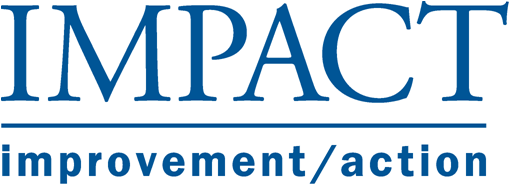Bruce Bradley, former Director of Health Care Strategy and Public Policy
General Motors Corporation
Bradley is one of the founders of the NQF (National Quality Forum) and a developer of the well-known HEDIS measures. As a framework for his discussion of what employers expect of the healthcare system and the providers, Bradley reminds us of the tremendous problem of medical errors that we are faced with nationally. Overall, employers expect effective and efficient healthcare delivery but they have limited options for controlling costs aside from decreasing eligibility, decreasing benefits, or improving healthcare quality by reducing waste (overuse, underuse, misuse, administrative waste, process waste).
Evolution of employers’ management of their health care programs has shifted from payment for premiums to a focus on community health. Ultimately, collective leadership at the community level powers successful and significant change, which is very difficult to achieve! (This is where IHI comes to the rescue.)
The success of GM Community Initiatives has been driven by existing local relationships that are influential in cost/quality improvements (in terms of both money and lives saved). The Greater Detroit Area Health Council spun off the Save Lives Save Dollars campaign for which the goal is to achieve 100% adherence to select evidence-based clinical guidelines and save $500 million over three years OR reduce the rate of Southeastern Michigan healthcare expenditures by 1-3%. The campaign is based on the Health Care Performance report.
Bradley calls for health plans to provide quality leadership in large corporations in order to move away from focusing on issues of attribution and toward aspects of ownership and system wide change. Basically, CEO and Board leadership is needed on every level.
In order to make collective leadership function employers must be educated on how to better support, measure, reward and hold providers accountable. Employers must also be taught to understand the business case for quality and about the potential ROI for their own time.
Subscribe to:
Post Comments (Atom)

No comments:
Post a Comment